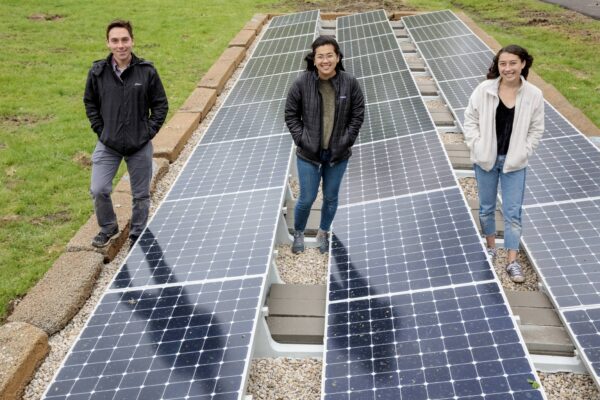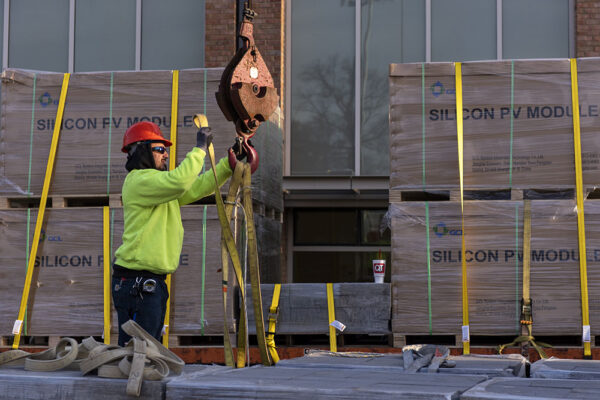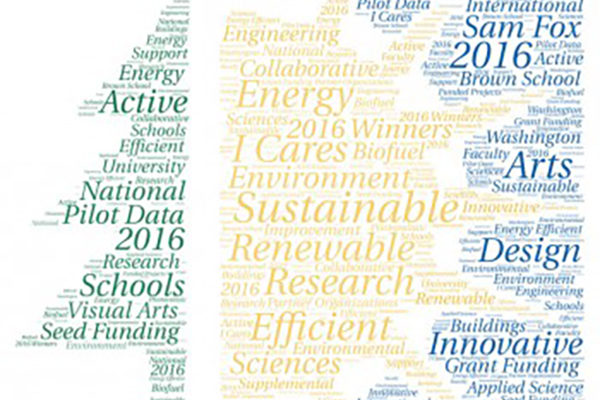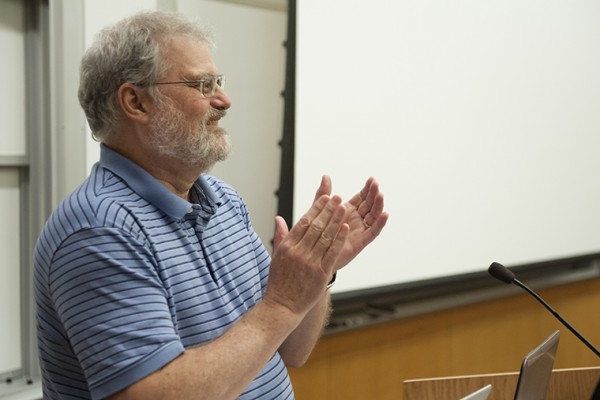Building the power plant of the future
The federal Office of Fossil Energy has granted researchers at the McKelvey School of Engineering nearly $7 million to refine a new power plant that’s suitable for fossil fuels and renewables — and will emit almost no carbon.
Walking the wire: Real-time imaging helps reveal active sites of photocatalysts
Nanoscale photocatalysts are small, man-made particles that harvest energy from sunlight to produce liquid fuels and other useful chemicals. A new imaging solution developed at Washington University in St. Louis reveals the significance of a particular structural feature — clusters of oxygen vacancies — in achieving high photocatalytic activity.
Expanding solar power at Tyson Research Center
A trio of engineering students at Washington University in St. Louis is helping to expand the solar power-generating capabilities at Tyson Research Center, which has frequent outages.
Creating sustainable bioplastics from electricity-eating microbes
Researchers in Arts & Sciences at Washington University in St. Louis have figured out how to feed electricity to microbes to grow truly green, biodegradable plastic, as reported in the Journal of Industrial Microbiology and Biotechnology.
Solar expansion continues at Washington University
Washington University in St. Louis has launched a new $3.5 million solar project. When complete, it will generate 2.5 megawatts of energy across the university, enough to take 480 cars off the road.
I-CARES announces 2016 research projects
The International Center for Advanced Renewable Energy and Sustainability (I-CARES) at Washington University in St. Louis has named the funding recipients from its 2016 call for proposals. I-CARES supports researchers who focus on renewable energy, climate change and sustainability.
Renewable energy certificate awarded
p.MsoNormal, li.MsoNormal, div.MsoNormal
{margin:0in;margin-bottom:.0001pt;font-size:12.0pt;font-family:”Times New Roman”;}
.MsoChpDefault
{font-size:10.0pt;}
@page WordSection1
{size:8.5in 11.0in;margin:1.0in 1.25in 1.0in 1.25in;}
div.WordSection1
{page:WordSection1;}
Four students at Washington University in St. Louis
successfully completed the Certificate in Renewable Energy and the Environment
this year
and were recognized at an event at the Whittemore House.
PARC wins renewed funding for photosynthetic research
The Department of Energy has awarded the Photosynthetic Antenna Research Center (PARC) $14.4 million for continuing research on natural and bio-inspired systems for harvesting the sun’s energy. The center, which is hosted by Washington University in St. Louis, was one of 32 projects selected for funding from among more than 200 proposals and one of only 22 to receive second-round funding.
How effective are renewable energy subsidies?
Renewable energy subsidies have been a politically
popular program during the past decade. These subsidies have led to
explosive growth in wind power installations across the United States,
especially in the Midwest and Texas. But do these subsidies work? Not as well as one might think, finds a new study from Washington University in St. Louis’ Olin Business School.
Focus on renewable energy
PARC and I-CARES recently honored three seniors who completed the Certificate in Renewable Energy and the Environment, which allows students to pursue interdisciplinary energy studies in addition to their academic major.
View More Stories







